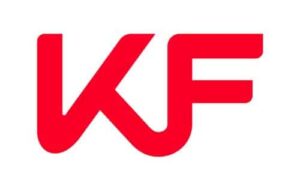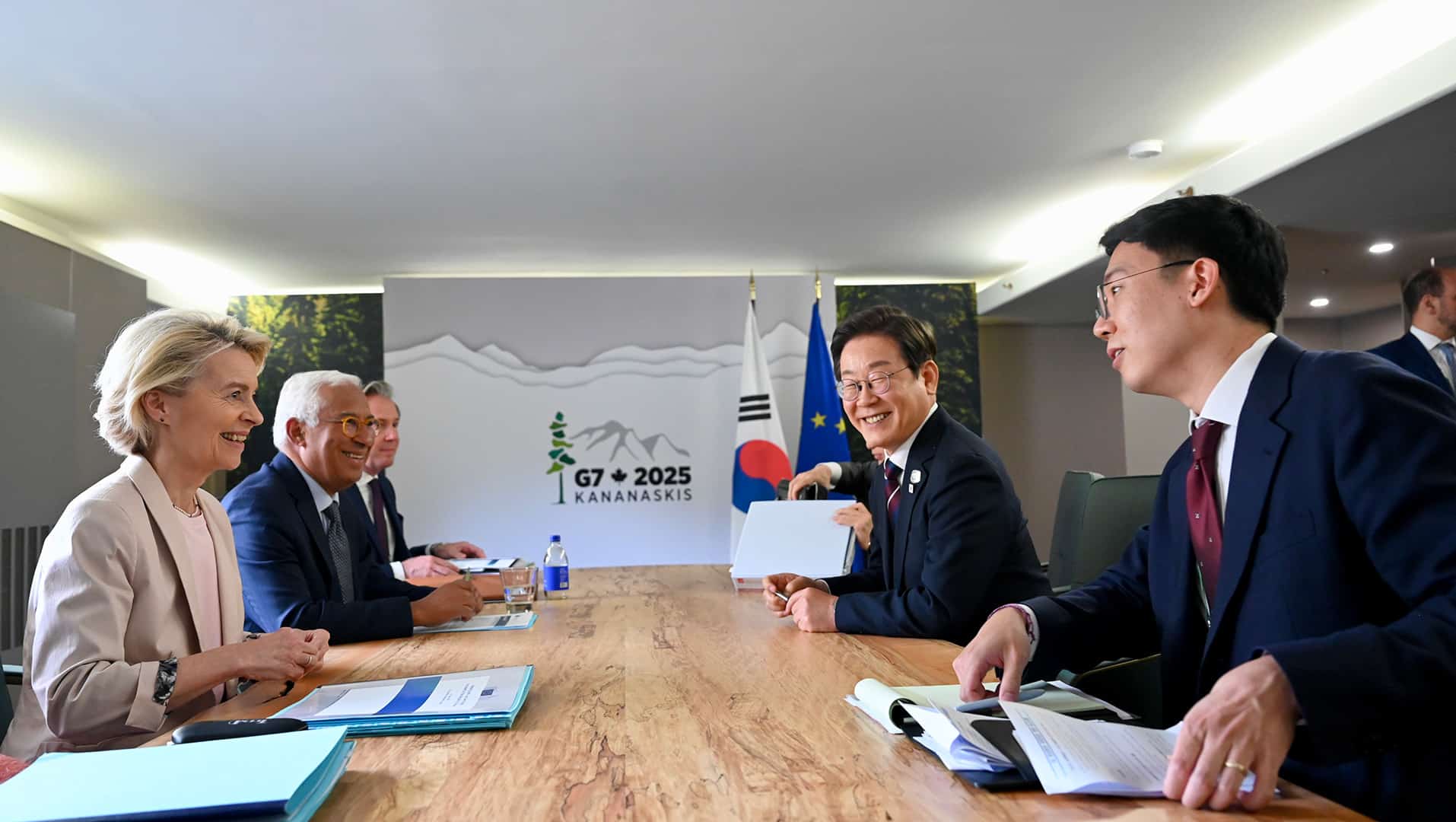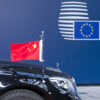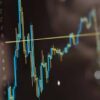Key messages
- This paper examines the potential for enhanced cooperation between the EU and the Republic of Korea (ROK) in reforming global governance amid growing geopolitical instability. It underscores the shared commitment of both actors to multilateralism, the rule of law, and sustainable development.
- Key findings highlight South Korea’s reliability as a strategic partner due to its strong democratic institutions, economic capacity, and dedication to global norms.
- The EU and ROK demonstrate broad alignment on reforms to the United Nations, particularly regarding the Security Council and peacebuilding efforts, and advocate more effective roles within the G7, G20, and WTO.
- They also share goals in areas such as development finance, climate policy, health governance, and digital regulation, with an emphasis on inclusive, human-centric approaches.
- The authors argue that by pursuing focused, realistic goals and engaging selectively with major powers, the EU and ROK can lead in shaping a more stable and inclusive international order.
Analysis
The current global governance system is at a critical juncture. The rules-based international order faces significant threats from major powers that seek to subordinate global norms to their own nationalist ambitions. This has resulted in increasing conflict and uncertainty, making international cooperation more difficult than ever. In such a turbulent context, besides preparing itself to play the game of power politics, the EU must actively engage in reinforcing global governance structures that uphold the principles of multilateralism, the rule of law and international stability.
To do so, the EU should pursue a strategy of open strategic autonomy. This means reinforcing partnerships with actors that share a vision for a more inclusive, rules-based, and cooperative global governance system. Despite its significant role in global affairs, the Republic of Korea (ROK) is often overlooked in European discussions on global governance. However, South Korea is a highly capable and reliable partner with shared values and strategic interests in upholding a fair and stable international system. Moreover, it is particularly well-suited to cooperate with the EU in this endeavour for several reasons.
First, South Korea has consistently demonstrated its solid commitment to multilateralism, free trade and international law. Its proactive engagement in global institutions, including the United Nations, G20 and WTO, highlights its dedication to a cooperative and rules-based international order. This shared commitment to multilateral cooperation and rules-based governance in managing global public goods is evident in their joint efforts to combat climate change, to advocate digital governance frameworks that promote cybersecurity, data protection and ethical AI development, and to build stronger global health cooperation. Secondly, South Korea is a vibrant democracy with a big and sophisticated economy, which allows it to push for reforms in global trade, finance and technology governance. Being an innovative and technological powerhouse, the ROK is well positioned to shape global tech regulations, modernising global governance to ensure the responsible development and use of new technologies, such as artificial intelligence, linked with the four industrial revolution. Third, the EU and the ROK have laid a dense institutional structure to articulate bilateral cooperation, as South Korea was the first country to establish agreements with the EU covering all three pillars of economic, political and security affairs (eg, Free Trade Agreement, Political Framework Agreement and Security and Defence Partnership), which could be a stable foundation to boost bilateral cooperation on global governance.
1. The UN system
Overall, the stances of the EU and the ROK on the reform of the UN are largely convergent. Both have been active in pushing for a comprehensive reform of the UN system, including its General Assembly and Security Council to increase their added value and update their relevance.
Both the EU and Korea have advocated for greater coordination, transparency and fair representation through their participation at the Ad Hoc Working Group on the Revitalisation of the Work of the General Assembly. In this platform, Korea has emphasised the need of the UNGA to avoid gaps, or duplications among its different entities, improve its transparency, and ensure fair gender and geographical representation, as well as to promote the participation of civil society and academia. Similarly, the EU has called for improved coordination and transparency, appropriate funding and improved gender balance. More specifically, regarding the selection and appointment of the Secretary-General, the EU has identified three priorities in February 2025: (a) gender balance; (b) a clear, inclusive, formalised and transparent selection process; and (c) the involvement of civil society and other actors in the process.
Both the EU and the ROK regard the UN Security Council as the key guarantor of peace and security. However, they acknowledge the need for substantial reforms to enhance its effectiveness, inclusiveness and transparency. Their shared concern about the paralysis of the UNSC has been heightened by its inability to take decisive action against flagrant violations of international law on the conflicts in Ukraine and Gaza. This problem was further underscored in Seoul by the failure to renew the mandate of the Panel of Experts tasked with monitoring compliance with UN sanctions against North Korea. As these deadlocks are mainly linked with the right to veto granted to the permanent members of the Security Council, the South Korean Minister of Foreign Affairs, Cho Tae-yul, has called at the UN General Assembly to address the dysfunctional misuse of their veto power. Along the same lines, the EU has called for the UNSC’s full application of Article 27(3) of the UN Charter, which intends to constrain the use of veto power by obliging the parties to a dispute to abstain from voting. Additionally, it has expressed support for the French-Mexican initiative recommending UNSC permanent members to voluntarily restrain from using the right of veto in cases of mass atrocities, as well as the ‘Code of Conduct regarding Security Council action against genocide, crimes against humanity and war crimes’.
Additionally, both the EU and ROK have advocated making the UNSC more representative, expanding its membership. The EU considers that the Security Council needs ‘to reflect today’s realities and represent all regions of the world’, in particular considering that a strong voice from Africa is essential to discuss global challenges given the continent’s major demographic weight. Korea has also openly supported the expansion of the number of non-permanent members, but is considering a favourable compromise proposal of longer-term re-electable seats. Finally, both the EU and Korea have expressed support to strengthen the Peacebuilding Commission (PBC), while the EU is committed to enhancing its own engagement with this body.
The convergence on their views of the PBC is part of their similar approach to making the UN work on addressing conflicts more coherent, an area where both the ROK and the EU have been active ahead of the 2025 Review of the UN Peacebuilding Architecture. At the UNSC Open Debate on Promoting Conflict Prevention the EU called for a UN support system for conflict prevention ‘more coherent, better resourced and better prepared’. It made three concrete proposals to improve coherence and funding of EU activities, including a more systematic support to member states to develop national prevention strategies, ensuring that the efforts of UN agencies are synchronised and the formulation of a new paradigm for financing conflict prevention, building on the Financing for Peacebuilding resolution from 2022. Along the same lines, the ROK has also advocated a more coherent and integrated approach to strengthen the UN’s peacebuilding architecture and supported the Asia-Pacific Regional Consultation on the 2025 Review of the UN Peacebuilding Architecture to ensure regional voices are heard and to demonstrate its commitment to contribute to ongoing discussions.
The EU has also proposed some reforms to improve the credibility and effectiveness of the UN Human Rights Council (HRC), encouraging increased public scrutiny of its membership responsibilities and mandatory pledging events at the UN General Assembly for candidates to join the body. Although Korea has not made specific proposals in this regard, it plays an active role as a member of the HRC and has committed to strengthening cooperation with the EU on human rights within the relevant UN human-rights bodies.
2. G7 and G20
The G7 has taken a more proactive role in recent years, moving beyond its traditional focus on economic governance into a more geopolitical role focusing on coordinated initiatives to contain certain Chinese practices, hit Russia’s economy following Vladimir Putin’s decision to invade Ukraine and admonish and sanction countries such as Iran and North Korea. Increasingly, however, the G7 has been working with like-minded partners in an unofficial G7 Plus including Australia, South Korea and, more recently, New Zealand. In this respect, G7 members are attending to two geopolitical realities: their shrinking share of the global economy and the shift of the centre of political and economic gravity towards Asia and the Indo-Pacific.
The ROK has made clear its ambition to join the G7 de jure and not only de facto as part of the G7 Plus. The vision of recent South Korean governments, both conservative and liberal, is that their country would join along with Australia. Both are among the 15 largest world economies, developed countries and vibrant democracies. In this respect, they share the core characteristics of the G7 members. It should also be remembered that the G7 started as the G5 and after the Cold War it even became the G8, after Russia was granted membership. In other words, its membership has fluctuated over time. The EU and its three G7 members have appeared to be more reluctant to expand the membership of the G7 compared with Canada, Japan, the UK and the US. Most notably, France, Germany and Italy have not invited Australia or South Korea to join the G7 summits that they have hosted in recent years. Considering that the heavy transatlantic tilt of the G7 makes it less relevant at the global level than it otherwise could be, it would be beneficial for the EU, France, Germany and Italy to support its expansion.
Regardless of whether the G7 formally expands or not, the EU could make the case for more regular consultations with the ROK on matters pertaining to East Asia. Recent joint statements issued by the G7 discussing North Korea, the South China Sea or the Taiwan Strait carry little weight because, ultimately, most of the countries issuing them are secondary to these disputes. Furthermore, were there to be a conflict in any of these regions, the involvement of most G7 members would be limited. Therefore, the statements issued by the G7 on East Asia-related matters can easily be dismissed by countries in the region as external interference. It would be different if the statements also included the ROK –as well as Australia and New Zealand, as was the case with the joint statement on North Korea issued in November 2024–.
It should also be noted that the G7 has been upended by the return of Trump to office. As a case in point, the recent meeting of ministers of Foreign Affairs showed divisions with regards to the position of the different members in relation to Russia’s invasion of Ukraine. In this respect, an idea that has recently been making the rounds is that the G7 members could use the group to influence and contain what they see as the worst excesses of the Trump Administration. Paradoxically, this could make the participation of South Korea and countries such as Australia even more relevant, insofar as they could reinforce the message that the allies and partners of the US would seek a different behaviour on the part of the Trump Administration.
With regards to the G20, the institution has become almost paralysed as a result of US-China competition, widely differing views about Russia’s invasion of Ukraine and long-standing North-South divisions about the group’s purpose. The 2023 summit was a particularly low point, with Xi Jinping skipping the summit and Putin unable to attend due to opposition from the US and European G20 members. The ROK, the EU and the EU’s member states who are part of the G20 could work together with other group members to create the conditions for the annual summit and other high-level meetings to serve as a dialogue mechanism, particularly between the US and China, since they all share an interest in more stable Sino-US relations.
The ROK and the EU could also push for the G20 to narrow its focus. The group was originally launched as a dialogue and consultation mechanism to promote financial stability. Over time, its scope has broadened to address a wide range of economic, political and security issues. Considering the fractured nature of the international system at present, going ‘back to basics’ by focusing on financial stability or sustainable development could prove to be a better approach. This is particularly the case with Trump taking office for a second time and his Administration withdrawing from several international institutions, while pressing for others to show their value for the US itself. This way, the ROK and the EU could help to keep the G20 operational until there is space for the group to promote a more ambitious agenda again.
3. Joint approaches to development, climate, health and technology governance
Both the EU and the ROK, sharing a common interest in the effective reform of global governance, have identified critical areas of focus, including development cooperation, climate change, public health and technology governance.
The EU is a strong supporter of strengthening the UN Development System (UNDS) and ECOSOC to increase their effectiveness in the delivery on the 2030 Agenda and the UN Charter. More specifically the EU has advocated for predictable and sustainable funding for the Resident Coordinator system and for a more inclusive, effective, fair and transparent functioning of the Committee on Non-Governmental Organisations including through limitations to unjustified deferrals. Although Korea has not been as explicit as the EU in calling for the reform of those bodies, Seoul has committed to lead UN discussions on economy, society and health and has devoted itself to ‘step up efforts to reshape the international system to achieve the SDGs’. In particular, regarding development, Korea considers that Multilateral Development Banks (MDBs) should be ‘better, bigger and more effective’ and that they should have an adequate mandate and better financial mobilisation options to maximise progress in the SDG front. Similarly, the EU supports the reform of International Financial Institutions (IFIs) to facilitate a more inclusive international financial architecture and the strengthening MDBs, so they can effectively contribute to address global challenges such as extreme poverty, climate change, biodiversity loss, and pollution. This is an area where ROK and EU have identified their commitment to work together, as pointed out in a joint statement in 2023 the EU and Korea agreed to accelerate the reform of MDBs to improve their functioning and the provision of global public goods.
The reform of the MDBs and the international financial architecture is also considered key by the EU to be able to deliver more climate finance, as noted in the Conclusions on climate finance in view of the 2024 COP29. Regarding climate governance more broadly, the EU and Korea support the 2015 Paris Agreement, the 2030 Agenda for Sustainable Development and the Kunming-Montreal Global Biodiversity Framework and have been active in promoting the improvement of these frameworks. For example, at the COP 29 the EU led efforts for brokering an agreement aligning global financial flows with the objectives of the Paris Agreement, and South Korea noted that it has expanded its voluntary contributions to climate financing, committed to further increasing them and launched the Korea Climate Transparency Alliance. Climate is also a key element in the EU-ROK partnership with the Green Partnership, and both parties have committed to contribute to ongoing global efforts to implement climate objectives.
The EU and the ROK have also been proactive in the process of reforming international health regulations with the WHO as the cornerstone of the multilateral health system. The EU considers that the WHO should strengthen its leadership, effectiveness, efficiency and accountability, which requires more resources backing a stronger and more independent mandate. Similarly, the Korean Health Minister, Cho Kyoo-hong, underscored the importance of a balanced review of the characteristics, advantages and limitations of various health crisis financing options. Moreover, the EU and ROK have committed to work together to enhance global coordination against future health crises, strengthen pandemic prevention, preparedness and response and to reform health-related governance, and identified WHO agreements and revision of the International Health Regulations as relevant areas to work on.
The governance of emerging technologies is another area of interest and cooperation for the EU and South Korea. Their shared support for the UN’s Global Digital Compact –highlighted by Korea hosting a regional conference and the EU’s submission of its contributions– underscores their active engagement. Both actors emphasise the importance of establishing inclusive, multi-stakeholder frameworks that uphold human rights and promote an open, secure and human-centric digital environment. At the 79th UN General Assembly, Korea stressed the need for new governance models to address technological change, aligning with the EU’s call for a multilateral system that advances responsible digital transformation. Korea’s vision of AI serving humanity mirrors the EU’s human-centric approach to digital governance. This is explicit in EU documents and evident in Korea’s leadership in promoting multilateral dialogues such as the AI Seoul Summit and the 2nd Summit on the Responsible AI in the Military Domain (REAIM). Hence, it is just natural that their 2023 Digital Partnership and Joint Statement further identify each other as key partners in promoting rules-based technology governance, including in sensitive areas like military AI. With Korea’s new AI Diplomacy Division and the EU’s ambition to spearhead global norms, there is a clear momentum and opportunity for deeper cooperation in shaping international standards for emerging technologies.
4. Global trade governance
Global trade governance is facing turbulent times. The WTO is becoming dysfunctional, with the appellate panel unable to operate since the US started to block the appointment of new members in 2019, China violating its rules for years when convenient, a decades-long North-South divide on issues such as tariffs on agricultural products, and a growing tide of protectionism essentially rendering its core foundational principles meaningless. Despite these and other challenges, the ROK and the EU have been two of the largest beneficiaries of the trade liberalisation process ushered by the WTO and its predecessor, the General Agreement on Tariffs and Trade (GATT). Therefore, it makes sense for both of them to work together along with other like-minded partners such as Australia, Canada, Japan, New Zealand, the UK and Taiwan (labelled ‘Chinese Taipei’ by the WTO).
To begin with, the ROK and the EU can lead by example. China has never fully complied with the free-trade principles embodied in the WTO, making use of undisclosed subsidies, forced technology transfers, import restrictions and other instruments in ways that distort free trade. The US, meanwhile, has moved away from its decades-long support for trade liberalisation and now openly supports trade restrictions such as tariffs, while pursuing a strategy to reshore and onshore factories. In this context, it would be naïve for the ROK and the EU to continue with ‘business as usual’, as if the global trade environment had not changed. Yet even within this new context there is scope for the two of them to adhere to WTO principles as much as possible. This includes following a principle of proportionality in any retaliation against trade and investment restrictions imposed by China and the US, as well as not initiating any trade conflict outside of the WTO’s dispute-settlement mechanism with a third party themselves.
The ROK and the EU could also seek to try to bridge the gap between developed and developing countries in the WTO, so that the organisation can at least function as a forum for the exchange of ideas and, potentially, future plans about trade governance. The reality is that the WTO negotiation and dialogue process has not worked since the turn of the 21st century, when it became clear that the Doha round or trade negotiations had stalled. Developed and developing countries have different views about the next trade liberalisation steps, and a growing number of developing countries do not see Brazil or India –never mind China– as representatives of the voice of the ‘Global South’. As a country that has successfully transitioned from developing to developed, the ROK could help to bridge the gap between the two. The EU, meanwhile, continues to pursue trade agreements with less developed countries and regions, as the examples of negotiations with India, Kenya, Mercosur or the Philippines show. The ROK, for its part, has also keenly pursued a bilateral and regional trade agreement agenda. Together, the two of them could help strengthen trade relations between developed and developing economies at a time when the foundations of free and open trade are being eroded.
In addition, the ROK and the EU could also work together with other partners to find a way to fix and reboot the WTO’s dispute-settlement process in a way that satisfies the US. While a laudable initiative, the Multi-Party Interim Appeal Arbitration Agreement (MPIA) set up thanks to the leadership of the EU has not worked as intended, mainly because it seeks to replicate the current appellate body. Without US buy-in, no alternative to the appellate body is going to work. Thus, it would make sense for the ROK and the EU to think more creatively and suggest potential alternatives. These could include the dispute-settlement body referring difficult-to-solve cases back to WTO members or asking the latter to update and clarify the interpretation of the organisation’s existing agreements.
Conclusions
In a context where global governance is increasingly challenged by the actions of certain major powers, it is more imperative than ever for proponents of a rules-based international order –such as the EU and the ROK– to cooperate closely and assume a leadership role in advancing its constructive reform. At the same time, despite possessing greater capabilities than many other members of the international community, it is crucial that they acknowledge the limits of their influence in pursuing this objective.
This gives rise to three key conclusions. First, considering the currently unfavourable conditions for pursuing an ambitious global governance agenda, they should concentrate on a more focused set of short-term objectives. Secondly, they should seek to engage with the US and/or China whenever feasible, while steadfastly upholding their own interests and values. Third, they should advocate a more inclusive global governance framework, one that affords a greater voice and influence to actors willing to contribute to a rules-based global order.
In association with the Korea Foundation





